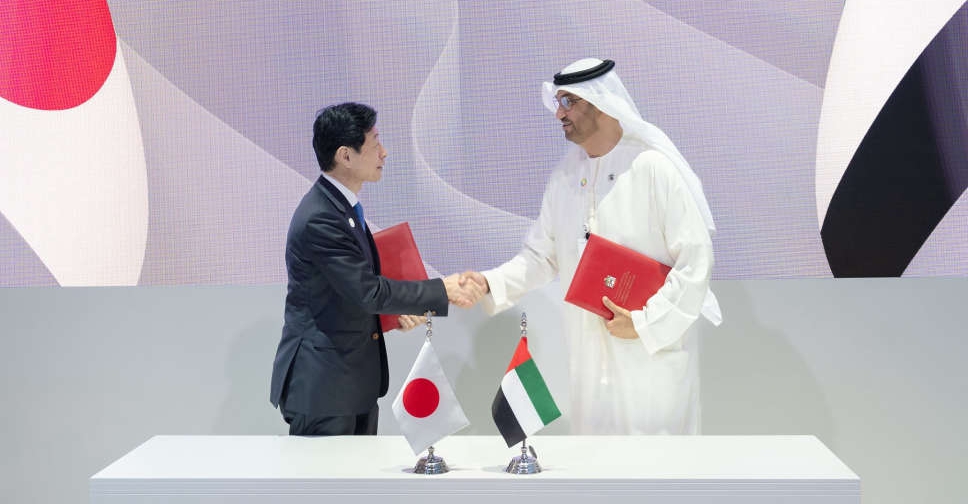
The UAE and Japan have signed several agreements and memoranda of understanding (MoU) to help accelerate the energy transition and the adoption of technology in industry.
Dr. Sultan bin Ahmed Al Jaber, Minister of Industry and Advanced Technology and UAE Special Envoy to Japan, met with Yasutoshi Nishimura, Japan's Minister of Economy, Trade and Industry, on the sidelines of Abu Dhabi Sustainability Week to discuss the countries’ strong bilateral relations.
They explored the hydrogen sector as a key component of energy transition, and also discussed the importance of accelerating progress towards carbon neutrality and opportunities for collaboration ahead of COP28, which will be held in the UAE later this year.
During the meeting, several agreements were signed, which included a MoU to enhance partnerships between Emirati and Japanese companies as well as explore joint investment opportunities.
It also aims to boost collaboration to accelerate the adoption of advanced technologies in support of both countries’ industrial goals and carbon reduction targets.
Dr. Al Jaber also witnessed the signing of a joint study agreement between ADNOC and Tsubame BHB, which explores opportunities for cooperation in the field of research and development with the aim of finding new solutions for manufacturing ammonia.
This initiative supports Japanese technology startups and helps to connect them with Emirati investors to facilitate their expansion.
A MoU was also signed between the Abu Dhabi Future Energy Company (Masdar) and the Japanese company JERA, covering the fields of green hydrogen and renewable energy.
These agreements and MoUs fall within the framework of the comprehensive economic partnership signed by the two countries in September 2022.
The volume of non-oil trade exchange between the UAE and Japan in 2021 amounted to more than AED49 billion.
Additionally, the volume of non-oil trade exchange between the two countries grew by 4.3 per cent year-on-year during the first nine months of 2022.


 Nasdaq set to confirm bear market as Trump tariffs trigger recession fears
Nasdaq set to confirm bear market as Trump tariffs trigger recession fears
 Dana Gas and Crescent Petroleum exceed 500M boe in Khor Mor field
Dana Gas and Crescent Petroleum exceed 500M boe in Khor Mor field
 China to impose tariffs of 34% on all US goods
China to impose tariffs of 34% on all US goods
 Shares bruised, dollar crumbles as Trump tariffs stir recession fears
Shares bruised, dollar crumbles as Trump tariffs stir recession fears
 Wall Street futures sink as tariffs fuel recession fears
Wall Street futures sink as tariffs fuel recession fears




